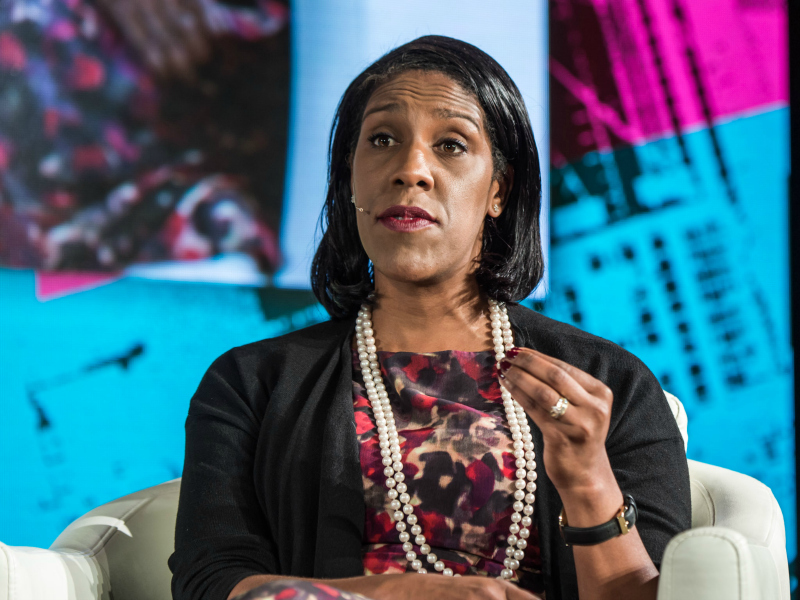Aarti Shah 26 Oct 2016 // 10:07PM GMT

MIAMI — Hurdles that prevent women from rising to top jobs persist, even as the need for empathetic and communicative CEOs becomes more urgent, was a key takeaway during the “The CEO of the Future is a Communicator…and a Woman” panel today at PRovoke16.
Global Strategy Group’s Tanya Meck illustrated the numerous challenges facing women with stark numbers: only 4.2% of Fortune 500 CEOs are women; female CEOs are much more likely to blamed for a crisis; 78% of female executives are asked about balancing work with family meanwhile their male counterparts are almost never asked; and most people think we’ll colonize Mars before reaching gender parity in the C-suite.
“We live in a white, male patriarchal society and until we address this we can’t do anything else,” said Teresa C. Younger, president and CEO of the Ms. Foundation. “There’s so much institutional bias and unconscious bias...But there are more males who have females in their life who are also in the workplace and that means we’re at a different point.”
Aaron Chatterji, associate professor at Duke University, cited a study that showed those most likely to ascend as CEO were those who worked across functions and geographies.
“This means someone in the family has to be willing to make compromises and moves — and that’s often women,” he said.
Cameron Blanchard, CCO for Conde Nast, noted that as female CEOs have adopted traditionally male characteristics of being highly-competitive, ruthless and decisiveness; male CEOs have become more empathetic, considering the greater impact of their decisions.
“When women carry the traits of men we should call it male imposter CEO because they have to do this with all of the bias, the boys network and failing upwards,” Blanchard said. “The Millennial workforce is entitled in a good way — they are challenging the status quo and untenable behavior.”
Younger referenced the “glass cliff” or women being “expected to work miracles” with limited resources, ultimately leading to burnout. Meanwhile, their male counterparts are given longer runways to build success over time.
GSG’s Meck pointed out that expectations for CEOs to take a stand on social issues has put more pressure on organizations to demonstrate gender and racial parity.


































.jpg)

















